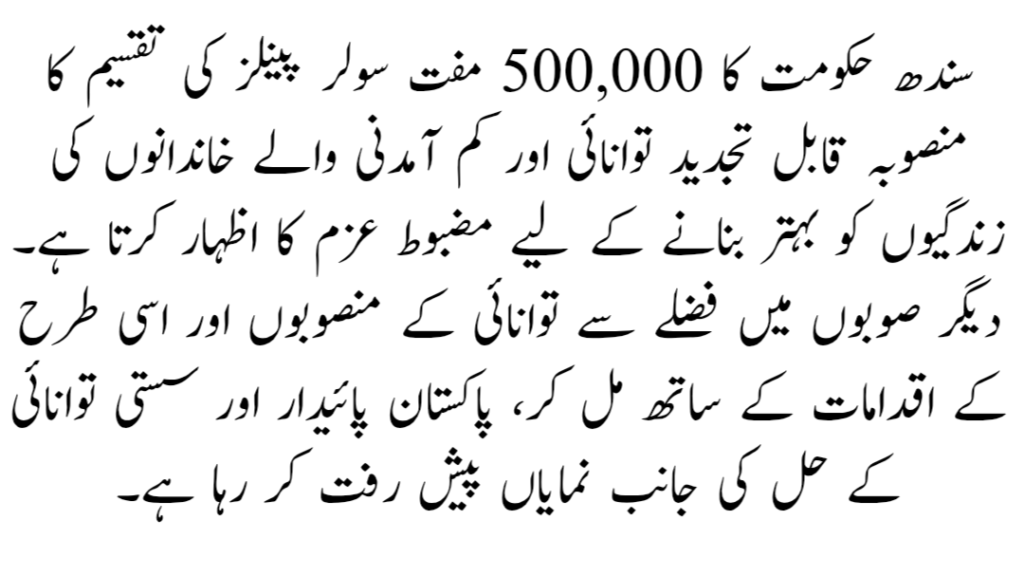Sindh government has announced a plan to provide free solar panels to 500,000 low-income families this year. This initiative aims to supply clean and affordable energy to households without electricity.
Key Details of the Solar Panel Distribution Plan
| Aspect | Details |
|---|---|
| Total Solar Panels | 500,000 units |
| Initial Allocation | 200,000 units |
| Additional Allocation | 300,000 units |
| Target Beneficiaries | Low-income families, especially in off-grid areas |
Initial Distribution Phase
Earlier, the government planned to distribute 200,000 solar panels under the Benazir Income Support Program (BISP). Of these, 50,000 units have already been delivered, with the rest to follow soon. This effort focuses on providing sustainable energy solutions to families lacking access to electricity.

Expansion to Additional Households
On the directive of Pakistan Peoples Party Chairman Bilawal Bhutto-Zardari, an extra 300,000 solar panels will be distributed later this year. This expansion aims to reach more low-income households, enhancing their quality of life through renewable energy. The combined effort will cover a significant portion of the 2.6 million off-grid households in Sindh.
Waste-to-Energy Project in Karachi
In addition to the solar panel initiative, the Sindh government is launching a waste-to-energy project in Karachi. The city generates approximately 15,000 tons of waste daily, which will be converted into 50 megawatts of electricity. This project aims to reduce urban waste and contribute to the province’s renewable energy goals.
Read More :Breaking News:PM’s Rs 10 Billion Ramadan Relief Package – Eligibility & Benefits
Punjab’s Free Solar Panel Scheme
Following Sindh’s lead, Punjab Chief Minister Maryam Nawaz has introduced a free solar panel scheme to provide permanent relief from electricity bills. Under this program, 100,000 homes will receive free solar panels at a cost of Rs10 billion. This initiative reflects a growing trend of provincial governments investing in renewable energy solutions to address energy shortages and reduce costs for citizens.
Conclusion
The Sindh government’s plan to distribute 500,000 free solar panels demonstrates a strong commitment to renewable energy and improving the lives of low-income families. Coupled with waste-to-energy projects and similar initiatives in other provinces, Pakistan is making significant strides toward sustainable and affordable energy solutions.
Also Read:Maryam Nawaz 3 Marla Plot Scheme 2025: Registration Process & Eligibility
FAQs
1. Who is eligible to receive the free solar panels in Sindh? Low-income families, particularly those without access to electricity, are eligible for the free solar panels under this initiative.
2. How will the waste-to-energy project in Karachi benefit the city? The project will convert 15,000 tons of daily waste into 50 megawatts of electricity, reducing urban waste and contributing to the city’s energy supply.
3. What is the scope of Punjab’s free solar panel scheme? Punjab’s scheme aims to provide 100,000 homes with free solar panels, costing Rs10 billion, to offer permanent relief from electricity bills.
4. How do these initiatives impact Pakistan’s renewable energy goals? These programs significantly advance Pakistan’s renewable energy objectives by increasing clean energy access and reducing reliance on traditional power sources.

